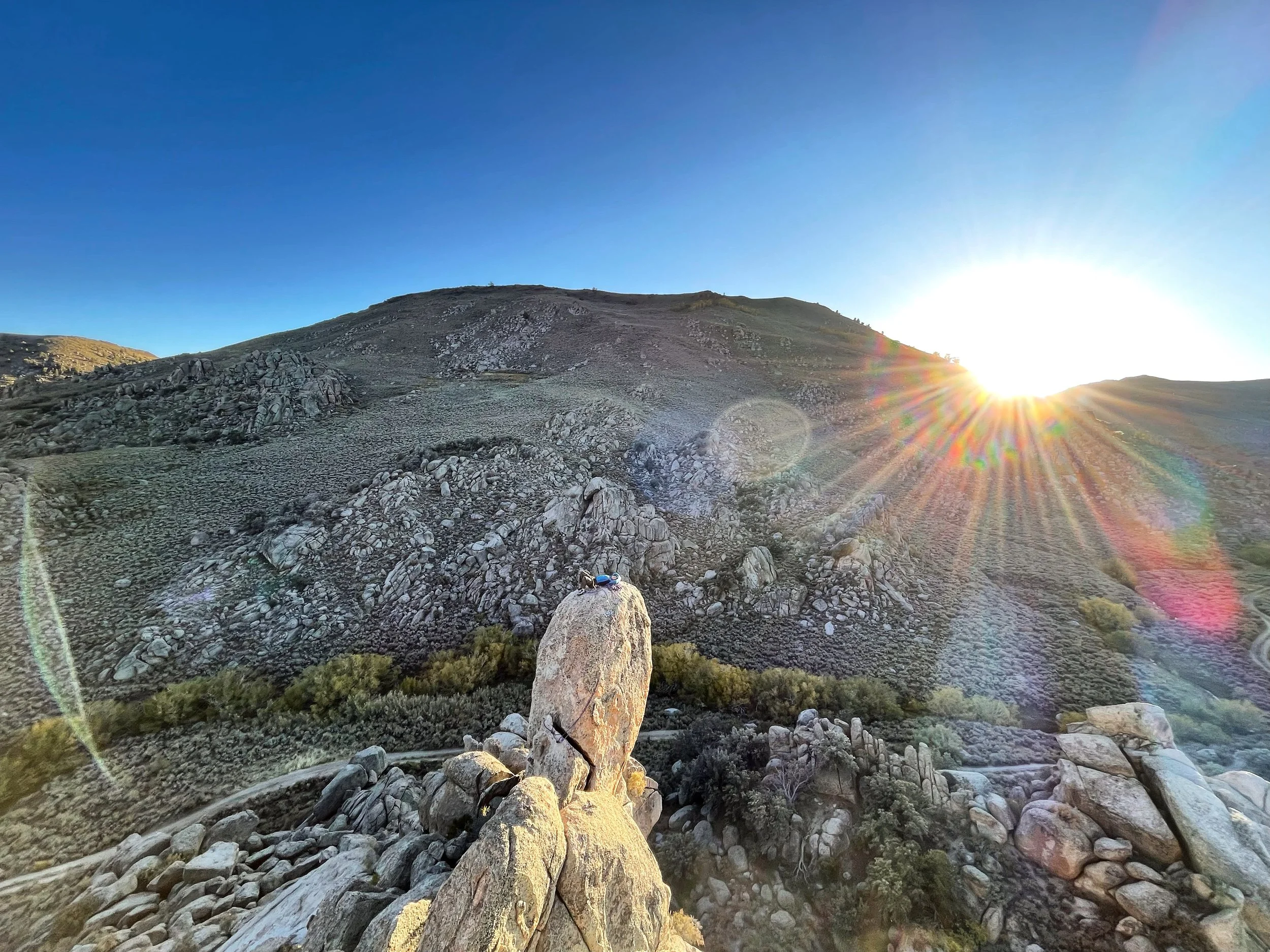THE BALANCE OF TRUTH AND LOVE

4.22.19
While it is true that at this very moment the actual publication of these words comes directly for my Senior Seminar project—just two weeks before I walk the graduate stage—know that the words contained in this publication are the product of over three dozen drafts, five years of undergraduate study, and many, many tears and prayers.
While this publication is but one moment, the words within are a prayer that has taken the past half decade to form. This prayer is for the man who finds himself standing in the doors of a church, walking out—not in. It is a prayer that my less-than-adequate story may somehow guide that man, if by chance it is you, to the place that I myself eventually found rest: the balance between truth and love.
TRUTH: It was June, 2015—a weekday.
I can still remember walking into my church office that day. I’d parked in the typical place, strolled through the car-port, felt the warm sun on my skin, and gone in the back door. The office was filled with the bright glow of fluorescent lights and the smell of coffee. As I entered, I said hi to the secretary—a good family friend—and to my mentor, the minister of education.
There was as an interesting air. My Dad, a beloved minister at the church, had just passed away the week before. The edge of the funeral still hung over us all. But, it was my first day back, and I had a new proposition for my pastor. My thoughts were on the coming fall. I was determined to move on. As part of this, I was considering transferring schools. So, I was seeking my pastor’s advice and possibly even a reference.
As I entered the board room, my pastor was already there, sitting at the familiar, long wooden table. He stood, greeted me, and we began to small talk before our meeting. The painting on my wall—one from my Dad’s house—even began to take the edge out of the air. Perhaps, for a time, all would return to normal. So, I began my proposition by pulling out the paper.
As I lay the paper between us, I explained to my pastor that I was so so grateful for the investment he and the rest of the church had made in me. The seminary classes were amazing. The mentorship was exceptional. Even the busy work was good. Every hour of the 300 hour Pastoral Training Program that I’d been in with the church was nothing less than a blessing. But, it was extremely theological. I felt that I had learned a lot about God, but hadn’t learned to apply it. I knew the truth, but not necessarily love. So, I wanted to go where love was: Hillsong College. Of course, such a self-diagnosis could be a bit off. But I was 18. I was still figuring it out, and this was the best option my Dad and I had discussed before he passed. So, I laid the application on the table, between my pastor and I.
I walked out of the office that day shell-shocked. I did not say goodbye to my mentor or the secretaries, nor did I stop and catch the day’s chatter. My coffee was left cold. There was no signature on my application. Furthermore, despite years of faithful service, I was immediately suspended from the church’s pastoral training program. I was not allowed to appeal to other staff members for a different ruling on the situation, and I was expected to report back within the week—either repenting from my desire to go to Hillsong as anything other than a missionary, or forgoing any future involvement at that church on the leadership level.
In my pastor’s opinion, I was a confused young man, making irrational decisions as a result of the loss of his father. My claim that my Dad supported this decision was ludicrous, and I was clearly being unwise. The pastor was protecting me from going to a school that he considered dangerous. (His church’s doctrine did not agree with Hillsong’s.)
In the days that followed, a long email chain between the pastor, my still grieving mother, my youth pastor, and some of the church elders led to a permanent suspension and the turning in of my church keys. My days at that church—where I’d spent five years growing in my faith, serving coffee to sweet old ladies, bonding with my youth pastor, and leading younger guys in their own faith journeys—were over. I walked out of those doors heart-broken, with little explanation.
Of the relationships I lost that day, only a handful have recovered. Both sides have since forgiven each other, but I would never be able to call that church a home again.
Even now, as I look back on that time, I’m flooded with emotion. My eyes are currently watering, but I am also reminded that God, in His grace, provided a community of believers around me that loved me, cared for me, and helped me not to give up on all churches in the weeks and months that followed that day.
As the years progressed, I began to heal, moving on from loss in both my biological and spiritual families. I became a member of a new church, and I put my Australian dreams on hold, returning to the University I was attending in the States—the one from which I will graduate next month.
As I sit here—four years later—however, I grapple with the events that happened that day. Was my pastor wrong to fire me? After studying Christian Studies all this time in college, I’ve found that doctrine and truth DO matter. A church staff must be unified. Simultaneously, however, I have not rid myself of the pain of that day. I felt no love. So, what was the issue?
From my perspective, there were two forces at play that day: truth and love. Truth had won, and love had lost—leaving a confused young boy searching for a new father figure and theological community to cling to.
So, for the next four years, while I was studying truth, love was my goal. I had to catch up—balancing the cosmic scale of truth and love. If for no other reason than reconciling the deep hurt I still felt from that day, I had to find the balance between truth and love.
Things continued this way for four years, until one day, an event broke my scale.
LOVE: It was 6:00am on a Tuesday morning in 2018.
I was sitting in Starbucks, meeting with my leadership team for a ministry I had just started. We were casting vision, planning events, and planning to garner excitement over the days to come. Every box was being checked. My hopes were high.
We announced a training meeting that we would have with the leadership team that month on Baptism in the Holy Spirit.
Yep. Baptism in the Spirit. Since that day, I’ve come to find that topic is in fact biblical—it is in the Bible. At the same time, I’ve found that i’m not sure I agree with how some charismatics view that topic. I’m still determining what I believe there, so for now I will simply reference Francis Chan and John Piper’s opinions.
Unfortunately for me, no one on my team was unsure what they thought. No one thought it was Biblical. So, in just a few days I lost my entire leadership team, became a black sheep on my college campus, and had more rumors spoken of me than I ever have in my life.
I was so confused.
The Bible says knowledge puffs up, but love builds up. I was busy loving people, not getting drug down in nit-picky theological issues. The goal of our instruction is love, so why not skip to that point? (1 Tim 1:5). That’s what the church needs. Love.
So, as I progressed into that year, I realized something. I was asking the wrong question.
LOVE IS TRUTH; THE ENEMY IS SELF
In my desire to counterbalance truth, I’d stiff-armed theology—allowing myself to advocate for a theological belief that I didn’t even understand. When that happened, I lost even more relationships than I had that day in church. All of a sudden, more love was not the answer. Stronger truth was the answer.
Having lost my answer to the hurt I felt four years ago, I turned to scripture to resolve my discomfort.
What I found is this: Truth and Love are not at odds. In fact, Jesus Himself embodies BOTH. He is the truth (John 14:6), and He is love (1 John 4).
In fact, the truth and love are found together, facing a new foe: self and idolatry. In Romans 1, it says that humanity’s chief problem is that they “exchanged the truth of God for a lie, and worshiped and served created things rather than the Creator” (Rom 1:25). So, our problem is that we exchange the TRUTH of God for a lie. God’s truth is this: Jesus Christ (1 John 2:20). The result of exchanging God’s truth for a lie in Romans 1:25 was worshipping and serving created things instead of God. When they left the truth, which is God’s love through Christ, they worshipped themselves.
So, a new paradigm emerges. Love and truth were simultaneously forsaken. The two are not separate, they are in fact the solution to our real problem: self-worship.
So, with this in mind, I present to you some loving-truths.
Undervaluing truth is equally as damaging as undervaluing love.
Truth matters.
While the gospel is most important, differences on secondary issues can also change lives and ruin relationships. We have to know WHY we are teaching what we are teaching. Love is the end result. But if there is no structure of truth behind it, we are holding nothing up. We cannot love well if there is no truth behind what we are saying. It may feel like these theological issues are a distraction and a waste of our real goals, but they are the necessary means to the end. Truly, the ends and the means are much more the same than we think they are. We cannot love rightly if there is no truth. And if it is not loving, it is not truth.
Love matters.
All of scripture commands us to love AND to discern what is true. The first and second greatest commandments revolve around love. These commandments are not divorced from truth. Men like Paul who had very loving relationships with the church spent a majority of his time CORRECTING doctrinal divisions within the church. The great commission commands every believer to TEACH one another.
Let’s come to the campfire and have a very serious talk.
Love matters. And so does truth. Overlooking either one can lead to SERIOUS pain and loss of relationship. If all we do is tickle our friends ears, they will drift as they please. If all we do is correct without loving, we lose people before we ever had them.
So, let’s hold love and truth in tandem with another. Let’s evaluate what we believe, and communicate it lovingly. Let’s think through what we advocate for, but also keep relationship the goal.
it was “truth” that the pharisees waved in Jesus’ face as they condemned him to the cross. But it was also truth that Jesus handed the Samaritan Woman at the well, leading her into true love for the first time in her life. Let’s not miss the savior for a pharisee’s lie, but let’s also not miss the well for a second-class substitute. As Colossians 3:3 says, let’s die to ourselves so that we can experience truth and love: Jesus Christ.




